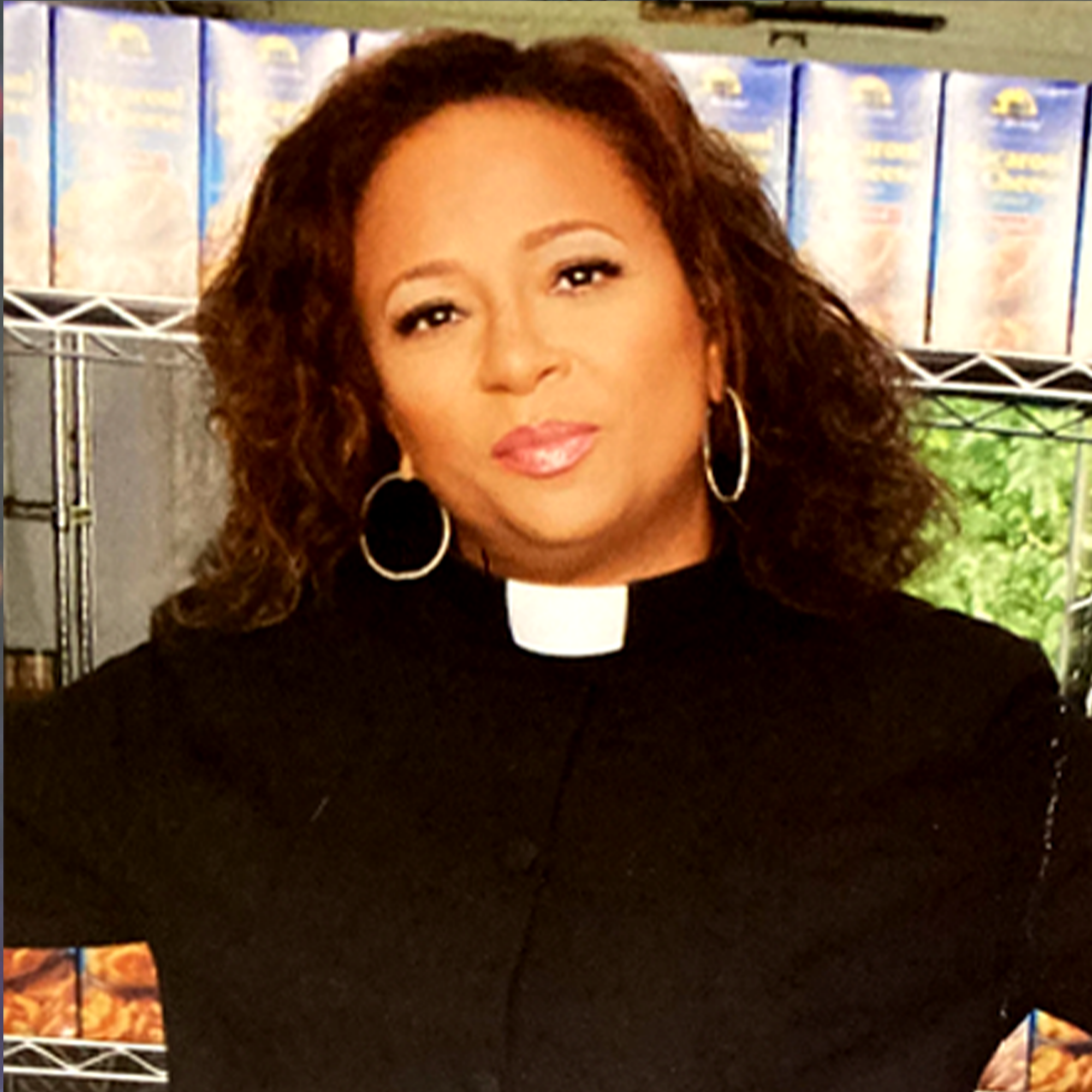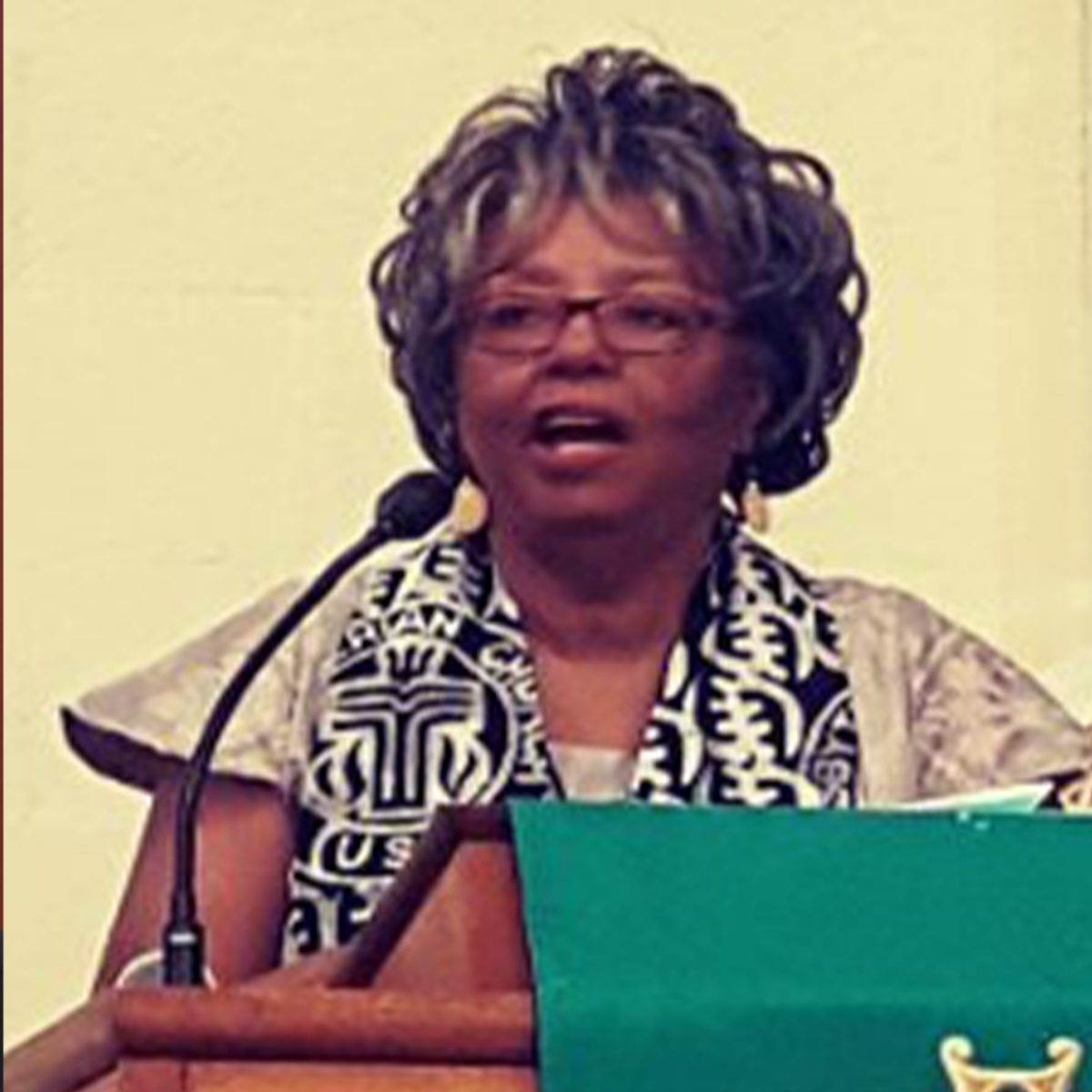LUKE 1:46b—55
As an unapologetic Black female, senior clergy, serving on the frontlines as community pastor, advocate, and organizer in a community 200% below the poverty level, in one of the most depreciated and disenfranchised sections of Northwest Detroit, I see the age-old constant appropriation and commodification of bodies and choices. Most especially regarding women of color, and most often by men in power. As uncomfortable as it may be, I challenge each of us to experience this text not as a sacred text but as a window into the life of a young girl of color. This young girl who is grappling with decisions that her young mind should not have too. Having to accept decisions made for her and her body. It is incumbent that the lens that this text be read through be that of a Womanist lens, one of empowerment and liberation.
The deep waters of intersectionality that most women, most especially women of color, are forced to wade in and out is often-times murky, muddy, and polluted. The expectation that is placed upon one person to be the acceptable spokesperson for an entire group is too heavy a weight to bear. Yet we see this continually in our communities, movements, churches, and more so in our sacred texts. Far too often, women have been expected to toe the line and operate in accordance with what others—usually men, more specifically white men – have designated as acceptable behavior. Our originality as individuals with unique lives, thoughts, dreams, and ideas is often-times disregarded for the ‘good of all.’
In present day, we continue to see this long-standing tradition of women most especially women of color being expected to be quiet, follow the established norms and procedures at all cost—even when the fee is our physical bodies. We are critiqued, admonished, sometimes physically attacked, shunned, and even cast out when we opt to break from the expected norm.
As little girls we are taught that we are to present, perform and please at all cost. When we push back and decide to honor the voice from within, we are demonized, categorized as loud, unreceptive to direction, and not concerned for all. At an early age we are taught to question our dreams and hopes. Too often women most especially women of color are forced to exist on the margins of society deemed as unworthy to be heard. Our voices are muted, and our bodies are not considered to be our own. We are not permitted to talk back and if we do, we are either labeled loud and brash or we are forced to pay the ultimate price with our lives—say her name Sandra Bland.
If we decide to protect and defend ourselves, we are slaughtered in our homes — say her name Breonna Taylor. When we decide to take our lives and agency back, we are tried and convicted as the criminal and never allowed to be the victim—say her name Cyntoia Brown. When we are elected to political offices by overwhelming voter support, we are still expected to be seen and not heard, not permitted to operate within the vested powers of the offices we are elected —say their names, Madame Congresswomen Rashida Tlaib, Alexandria Ocasio-Cortez, Ilhan Omar, and Ayanna Pressley. In Alabama, a rapist’s parental rights are protected over the women who have been raped. For women, most especially women of color, it is and has always been the battle-cry to self-rule, govern and make unilateral decisions around our own bodies. In most recent news, we see the U.S. under the presidency of this current administration (refusing to say the name as an act of protest), joining 19 nations, including Saudi Arabia and Russia: declaring there is no international right to abortion. More disconcerting is the extreme measures we are seeing to over-throw Roe v. Wade. There is a battle-cry going out—do you hear it?
The battle-cry begins in our text. Mary sounds the clarion call. It was and has been historically labeled as the Magnificat, Mary’s Song of Praise. A beloved song that Mary sung. But within this devotional, I would submit that what we are reading is a battle-cry—a clarion call by a young girl devoid of her choices, to challenge future generations. Challenge what others determine good and acceptable for each of us. To take back control of our bodies, our voices, our future, and our agency. That when we see this warped need to cast a net to challenge the validity of women’s rights to make decisions around our own bodies—that while we see the advertisements that state all life is precious, that too, Black lives really do Matter—right now!
This is not to say that Mary was not a willing vessel. But we must challenge ourselves to see through the eyes of this young female child of color. This pre-teen who has just been told that she will bear a child. All her choices are taken from her. Mary has no say—she is told this will be a blessed event and for her part she is to go along as instructed. All her dreams are deferred. Where were her choices, who was advocating for her? To think that God was limited only to Mary merely serves to minimize the unlimitedness of our God. To declare that Mary was blessed is undeniable—but that is not the question. The question is do we continue to view this pericope as a song or a battle-cry?
This is our opportunity to disrupt narratives of oppression. Mary, I believe has raised her voice in a battle-cry. The first thing we see is Mary declaring that she has decided to magnify her Lord (v.46b) —Mary takes back her power. Even in these dire, uncertain times we must be clear who the oppressor is and after identifying we must decide how much power we are willing to give up. Mary says her deliverer has toppled thrones and raised up and exalted the lowly (v.52), this is what protestors, Black Lives Matter say every day. Is Mary saying this as an empty rebuttal to what she has no say in? Mary’s silence is broken when she declares I will bear this child; I will accept what I have no power to refuse.
But Mary’s cry magnifies so much more—Mary recognizes that it is the poor and the hungry that need good things (v.53). Mary advocates for others when others do not advocate for her. Mary chooses to be a participant in this moment with the understanding that certain promises have been made and expected to be fulfilled (v.55). Mary declares if I am to be a part of this then there must be some future changes for all generations—we just cannot expect that things continue as before this moment. There should never be another young teenage girl, woman, who hungers for choices. Sacrifice if I must, but no one else should be compelled to such a weighty cost. Mary declares just as so many who have followed—if my body, my agency is to be the cost then let others have a choice and not be the sacrifice. And then this baby that I am carrying through no choice of my own, this man-child, be the last to be brutalized and sacrificed.
In this season of Advent—this season of arrival—I pray that Mary’s battle-cry goes out. That we see the long-awaited arrival of justice, equity, and inclusivity. That women’s bodies be honored as just that—their body! In this season of ‘newness’ some old ways and beliefs are cast out. That as we await the second coming of our Lord, we do not fall back into oppressive behavior and beliefs. That just as Mary passionately points out, we see and live into the need to ‘topple’ and dismantle systems of oppression against all, but most especially against the bodies of Black, Brown, LGBTQIA (+), the disinherited and disenfranchised. And that those that are hungry receive good sustenance.
Then maybe, just maybe, we too like Mary can hope to experience the Magnificat.

Rev. Roslyn Murray Bouier is a preacher, pastor, advocate, activist, organizer and a ‘Repairer of the Breach.’ Rev. Roz, as she is known throughout metro-Detroit, has been a community activist for over a decade. She currently serves as the Executive Director of Brightmoor Connection Client Choice Food Pantry where she has been aiding people since 2011. Within this role, Rev. Roz services 1,700 high-need families annually through a ‘client choice model food pantry.’ The pantry model was specifically selected because it affords individuals the dignity of shopping through a grocery aisle without the stigma of a traditional pantry. Rev. Roz is a sought-after activist, speaker, organizer, trainer and preacher, who have been featured in a litany of media outlets.



Unbound Social